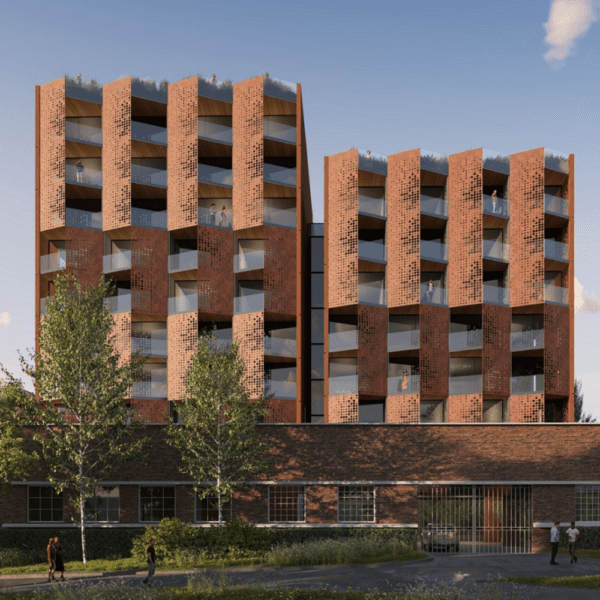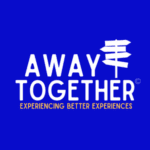 For Maud Bailly, CDO at Accor, digital transformation is not about merely relying on a loyalty program anymore, it is about culture and connected ecosystems.
For Maud Bailly, CDO at Accor, digital transformation is not about merely relying on a loyalty program anymore, it is about culture and connected ecosystems.
Starting her career in 2007 in French private and public institutions – from SNCF Director of Trains to Finance Inspector of the Ministry of the Economy and Finance – Accor’s Chief Digital Officer Maud Bailly oversees IT, data, ecommerce, guest experience but also sales and distribution for the hospitality group. During a recent visit at EHL Lausanne, Bailly exposed the key challenges at hand to not only change the corporate mindset within a non-digital native organization, but to ultimately viably implement digital transformation across the company.
Accor’s Chief Digital Officer
From Customer Relationship Management systems and Loyalty Programs, hotel and region services, digital product and innovation, distribution and global sales, to IT and data analytics, Bailly very much sees her role as embracing the entire customer journey. Leading the group’s digital function also means being able to transform the vision of becoming “more digital” into action. And that means taking on the role of evolving a non-digital native group into a competitive digital player, at a fast pace.
Since she started at Accor in 2017, Bailly shared that she has conducted 15 general manager roundtable discussions, which turned out to be of tremendous value in understanding their needs and defining how hotels and regions can be supported by the group. In the end, Bailly’s focus to deliver an efficient hotel and guest-oriented strategy encompasses a very wide perimeter of transformation, with the end goal in mind to create a digital and commercial mindset – while applying scalability.
The Accor strategy: Moving beyond traditional hospitality
Asserting the visionary nature behind the transformation of Accor, Bailly shared Accor’s reimagined story. Today, Accor believes in moving beyond the box of traditional hospitality clichés to live limitlessly – referencing the group’s soon-to-be-launched new lifestyle loyalty program, ALL – Accor Live Limitless – through digital content, personalization and distribution. In a recent article Bailly said:
My role is to embrace this new DNA and make it a reality for our two clients, (our) hotels and guests.
To gauge the magnitude of the task ahead, she called out the current crowded field of hospitality contenders through 3 interconnected challenges:
- Double competition: not only from traditional hospitality groups arising from new markets but also from new digital economy players, who are able to massively invest online, as well on advertising as on the customer journey itself.
- Intermediation of customer relationship and the value chain: as these new digital economy intermediaries continue to disrupt the value chain between hospitality players and their customers, traditional hospitality has to redefine itself to remain competitive.
- Blurring boundaries between brick & mortar and digital, and between B2B & B2C: as the boundaries between digital and non-digital have been thinning at a rapid pace, hospitality industry players cannot solely rely on their brick-and-mortar experiences anymore and need to drastically rethink their ecosystems to offer many more connection and interactions opportunities with their guests, as well on B2C & B2B segments.
For Bailly, addressing these current challenges head on means embracing the possibilities offered by an end-to-end customer experience. It is not about merely relying on a loyalty program anymore, it is about creating a broad and connected ecosystem across all of Accor‘s brands and touchpoints. So, how to get there?
Accor’s digital transformation in action
1: Simplicity and speed
As consumers’ expectations have drastically changed over the past two decades, Bailly shared that it is critical that Accor focuses of the seamlessness of its experiences to remain competitive. That means not only revamping the way guests can navigate through the various stages of their booking journey, but also sometimes taking bolder moves to simplify the choices at hand.
Case in point, as any good revenue manager knows, making rate fences easy for the guest to follow and self-select is paramount in supporting their willingness to book a hotel room. When Accor did just that and dialed 20 displayed rates down to 4 – based on customers’ key drivers of choice – and applied it to 3’613 hotels, it captured 100 million euros more in revenue per year.
To build simple and seamless experiences, Accor also took hints from digital giants such as Google to simplify customers’ paths, reduce loading time and in the end increase conversion rates.
On the acceleration’s front, Accor’s digital function – under Bailly’s leadership – has made it a priority to shed its digital weight and increase the pace of change and delivery. One key area Bailly has been focusing on was beefing up its data connections and payment systems. The group is now implementing cloud-based Channel Management Systems (CMS) and Property Management Systems (PMS) to support hotel operations at an accelerated pace, one of the objective down the line being to be able to open a hotel in a day.
2: Personalization
As stated by Accor‘s CEO Sébastien Bazin, the group is taking huge and bold steps towards implementing a Lifestyle Augmented Hospitality experience.
We have been a super good hospitality group for the last 50 years. We are not shying away from it. We are shifting and expanding the hospitality notion to Augmented Hospitality. We are being even more audacious and going one step further by saying: Since people want to be recognized, want to have something extremely personalized, why don’t we try going from Augmented Hospitality to a Lifestyle Augmented Hospitality player?
Sébastien Bazin, Chairman and CEO of Accor (Source: Accor TV – New Accor Strategy).
One of the cornerstones of Accor‘s foray into personalization is the new GDPR-compliant tool called ACDC (Accor Customer Digital Card), recently deployed in 3,500 hotels across 89 countries for 23 of its brands. This shared database now allows Accor’s entire network to collect and share guest preferences, empowering hotel’s staff in their desire to delight guests.
3: Usage behaviors
Fully harnessing the power of a seamless digital experience would not be complete without diving deep into how today’s customers are consuming information, across all channels and in a variety of markets.
Bailly shared how adapting the group’s digital strategy to regional specificities in terms of digital channel usage and content expectations plays a key role in being able to not only reach their customers with relevance, but engage and convert them. For example, as Chinese tourists are increasingly traveling abroad – from a modest 10.5 million trips in 2000 to 145 million trips in 2017 – Accor has been ramping up its digital presence accordingly: that means being active on the country’s top social network WeChat, tapping into China’s most used mobile payment options such as Alipay or China Union Pay or exploring potential further partnerships with travel provider C-Trip.
To build on that “seamlessness” down to the brick-and-mortar experience, the company has also launched a dedicated program to train up to 250 of its hotels by 2020 to cater to Chinese guests’ expectations.
4: Cultural transformation
On cultural transformation, once again Bailly emphasized that digital transformation cannot happen without cultural transformation. As a hotel’s staff is its most valuable resource to deliver exceptional service, empowering them to fully be immersed in these new “digital ways” is a critical component to establish digital ways of working.
Bailly shared Accor‘s digital transformation was poised around 5 axes:
- Becoming a service provider: systematizing, co-design and always adapting.
- Starting from true local usage needs vs. usage dogma: is it used and popular? If not, drop it.
- Embracing speed: granting employees the right to test, learn and fail fast.
- Embracing collaboration: use technology internally to keep all teams connected.
- Managing with value: embrace a startup culture, pitch bold ideas and infuse these ideas everywhere, with KPIs in mind.
This article first appeared on Hospitality Insights by EHL.



























